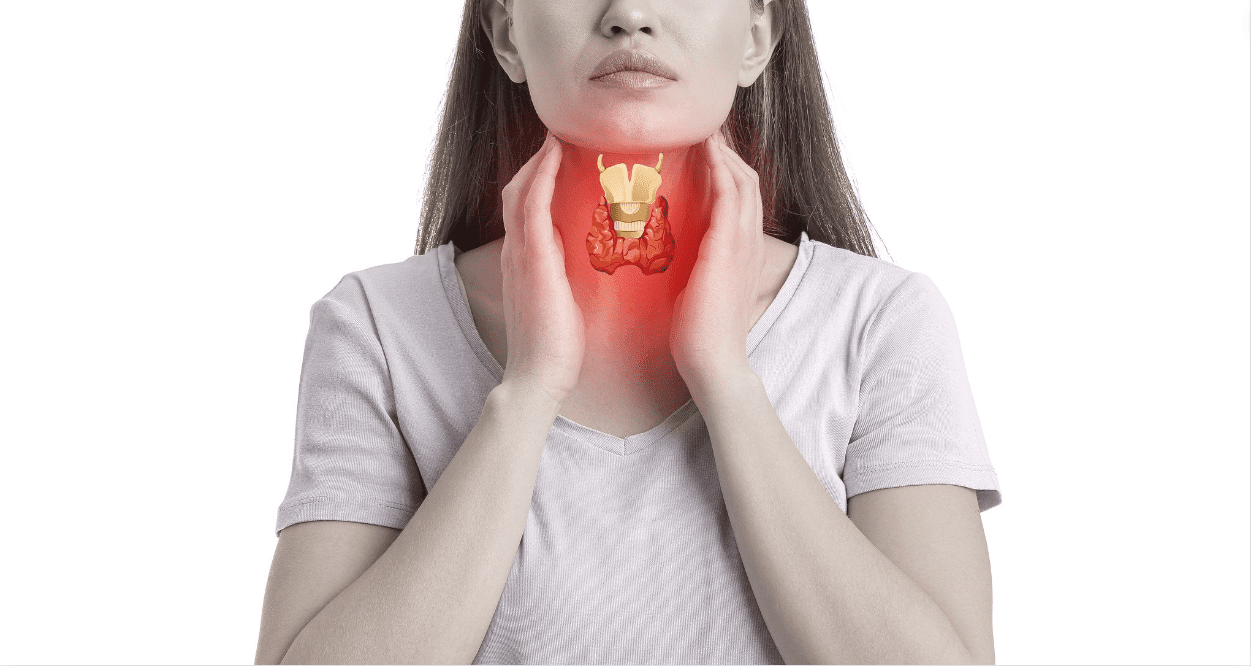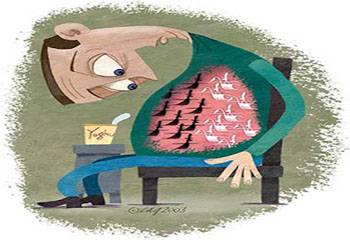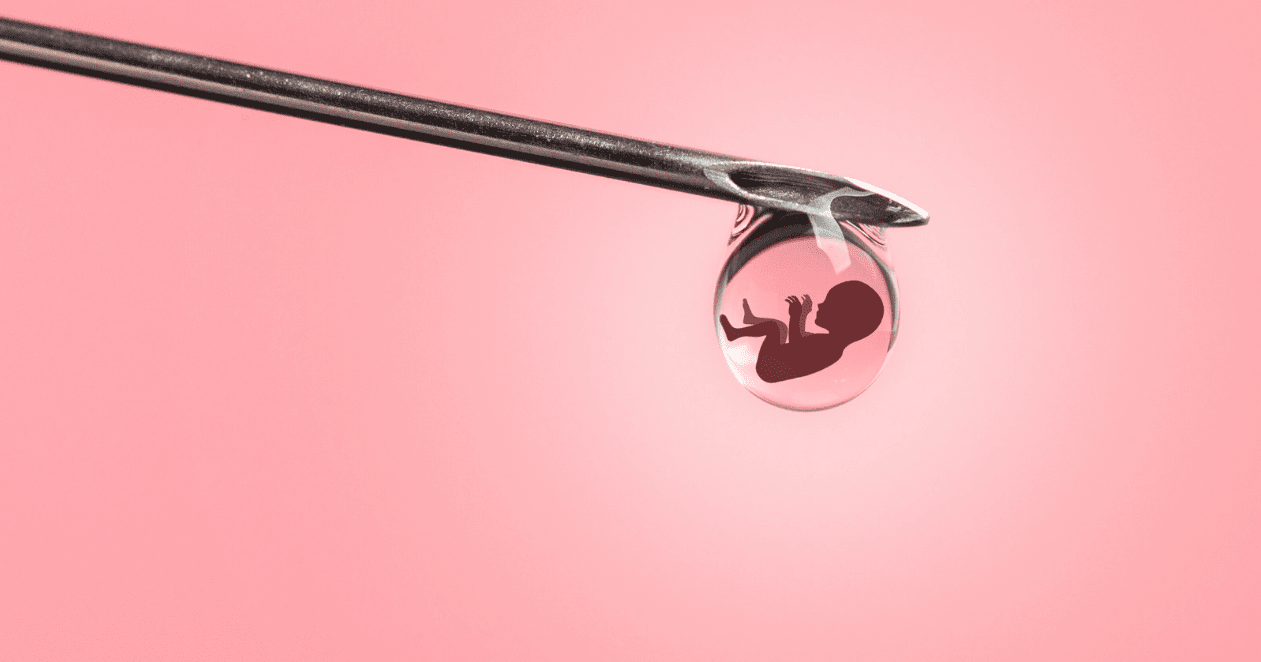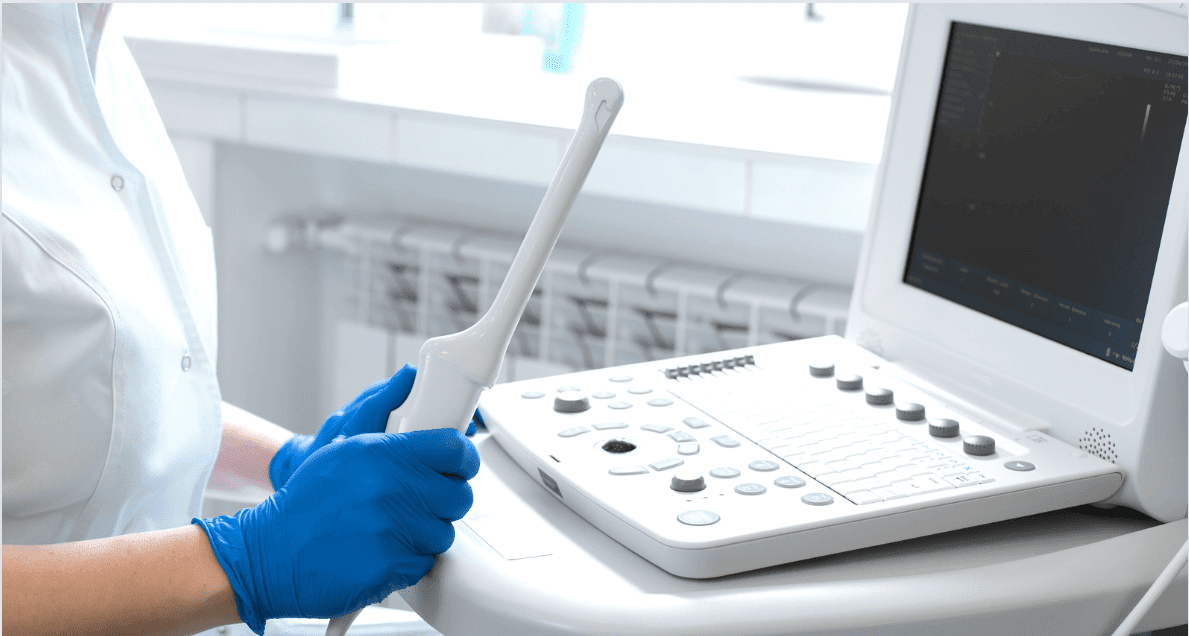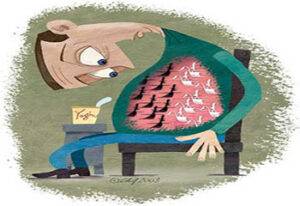Endometriosis is a chronic condition that often coexists with thyroid disorders, particularly autoimmune thyroid diseases such as Hashimoto’s thyroiditis and Graves’ disease. This means that if you have endometriosis, it’s crucial to have your thyroid screened by someone knowledgeable in functional endocrinology who can interpret thyroid pathology within a functional medicine framework.
To learn more about how these conditions present together and interact, read on below.
Understanding Thyroid Disorders
The thyroid gland is the master gland for anything related to metabolism. It produces several hormones, including T4 and T3, which are essential for weight management, metabolic rate, growth, development, mental health, cardiovascular function, protein synthesis, bowel function, and maintaining body temperature.
Hypothyroidism occurs when the thyroid begins to under-function. This can happen if the thyroid gland produces insufficient amounts of T3 and T4, if something blocks the conversion of T4 to T3, or if other stressors (environmental, infections, inflammation, toxins, etc.) cause the cells to deactivate thyroid hormones. Common symptoms include fatigue, weight gain, constipation, dryness, and depression.
Hyperthyroidism occurs when the thyroid begins to over-function, producing excessive amounts of T3 and T4 hormones. This overproduction can result from autoimmune disorders, nodules, or inflammation. Common symptoms include weight loss, rapid heartbeat, and anxiety.
When thyroid antibodies are present with hypothyroidism, it is called Hashimoto’s disease. When they are present with hyperthyroidism, it is called Graves’ disease. Most research has shown that these antibodies cause thyroid tissue destruction, but more recent thought suggests they are markers of immune system activity, not directly responsible for thyroid tissue damage.
All these thyroid variations can be found in women with endometriosis, but hypothyroidism and Hashimoto’s disease are much more prevalent.
Overlapping Symptoms Between Endometriosis and Thyroid Disorders
Women who have endometriosis and thyroid disease can experience more severe endometriosis symptoms.
Symptoms of thyroids disorders and endo can often overlap, and may include:
- Fatigue and brain fog
- Menstrual irregularities
- Fertility issues
- Weight gain (endo/hypothyroidism)
- Anxiety and depression
- Gastrointestinal issues (constipation/diarrhoea)
How Can Thyroid Dysfunction Affect Endometriosis?
Hypothyroidism/Hashimoto’s Disease:
- Reduced Thyroid Hormones (T3, T4): Decreased immune function and increased local inflammation in endometrial tissue.
- Elevated Prolactin Levels: Increased prolactin levels exacerbate endometriosis symptoms like pain, mood disorders, and infertility.
- Decreased SHBG Levels: Lower sex hormone-binding globulin (SHBG) levels increase oestrogen availability, fuelling endometriosis growth.
- Impaired Estrogen Metabolism: Low T3 levels hinder oestrogen metabolism, promoting endometriosis progression.
- Endometrial Hyperplasia: Low T3 can lead to a thickened endometrial lining, worsening menstrual bleeding and pelvic pain.
- Heavy/Irregular Periods: Altered T3 levels cause menstrual irregularities and impact fertility.
- Growth of Endo Lesions: Low T3 stimulates new blood vessel growth, supporting the growth of more endometriosis lesions.
Hyperthyroidism/Graves’ Disease:
- Elevated Thyroid Hormones (T3, T4): High thyroid hormone levels create an overactive immune response, increasing systemic inflammation.
- Impaired Progesterone Metabolism: Affects progesterone levels crucial to balancing the high oestrogen state of endometriosis.
- Fertility Impact: Negatively affects fertility, a common issue for women with endometriosis.
How Can Endometriosis Affect Thyroid Function?
Endometriosis can impact thyroid function through various mechanisms:
- Chronic Inflammation: Disrupts thyroid function.
- Autoimmunity: Often coexists with other autoimmune thyroid disorders, exacerbating thyroid issues.
- Shared Drivers: Factors such as poor oestrogen clearance, HPA axis dysfunction, excess cortisol (from stress), low progesterone levels, or progesterone resistance can drive both conditions.
Underlying Causes Affecting Both Endometriosis and Thyroid Function
Several underlying causes can interfere with both endometriosis and thyroid function:
- Missed Infections: Chronic infections can lead to persistent inflammation, contributing to both endometriosis and autoimmune thyroid diseases.
- Immune Dysregulation: An altered immune response can exacerbate both conditions, leading to chronic inflammation and immune system imbalances.
- Poor Methylation: Impaired methylation affects detoxification, hormone balance, and inflammation, impacting both endometriosis symptoms and thyroid health.
- Neuro-Angiogenesis: Abnormal nerve and blood vessel growth supports endometriosis lesions and impacts thyroid health indirectly through systemic inflammation.
- Toxic Environmental Exposures: Exposure to chemicals like mercury, mycotoxins, fluoride, phthalates, BPA, PFAS, PCBs, glyphosate, and dioxins can drive both conditions.
- Chronic Stress: Stress influences hormone levels and immune function, worsening symptoms of both endometriosis and thyroid disorders.
- Trauma: Physical or emotional trauma can trigger or exacerbate both conditions through stress, inflammation, and immune dysregulation.
- Coagulation Issues: Thyroid hormones play a role in blood clotting, impacting both endometriosis symptoms and thyroid function.
- Hormone Dysfunction: Hormonal imbalances contribute to the growth and symptoms of endometriosis and can impact thyroid hormones.
- Inflammation: Chronic inflammation is a key factor in both conditions, leading to pain and disease progression.
- Oxidative Stress: Damages cells and tissues, exacerbating symptoms and progression of both conditions.
- Microbiome Issues: Imbalanced gut, oral, or vaginal microbiomes can contribute to systemic inflammation, impacting both endometriosis and thyroid function.
What Are Some of The Best Diet, Environment and Lifestyle Changes for Someone with Endometriosis & Thyroid Disease
To alleviate symptoms of both endometriosis and thyroid disorders, consider some of the following basic changes:
- Diet: Avoid/limit gluten, dairy (especially cow dairy), caffeine, alcohol, and high-histamine foods.
- Go Organic: Always opt for organic foods, especially when it comes to fresh produce and animal foods. Learn how to buy organic foods less expensively here.
- Avoid Toxins: Reduce your exposure to toxins described above by making healthy swaps. Most importantly go fluoride-free by switching to a fluoride-free water filter (like reverse osmosis), swapping your toothpaste for a non-fluoridated toothpaste, and switching your favourite teas for organic substitutes.
- Stress Management: Practice daily stress-relief activities like meditation, belly breathing, singing, humming, massage, spending time in nature, and using infrared saunas (limit to 15-20 minutes if you have any sort of fatigue presentation).
By understanding the interaction between endometriosis and thyroid disorders and implementing these changes, you can manage symptoms more effectively and improve your overall health.
If you are looking for a comprehensive analysis of your thyroid & reproductive health, and advice around how to optimise it, please fill out an enquiry form here so I can help you today.

